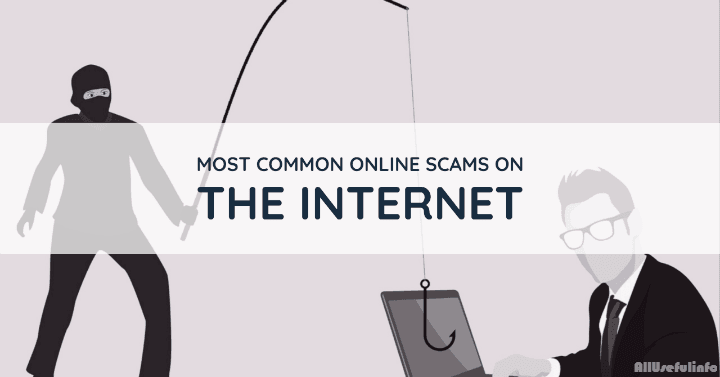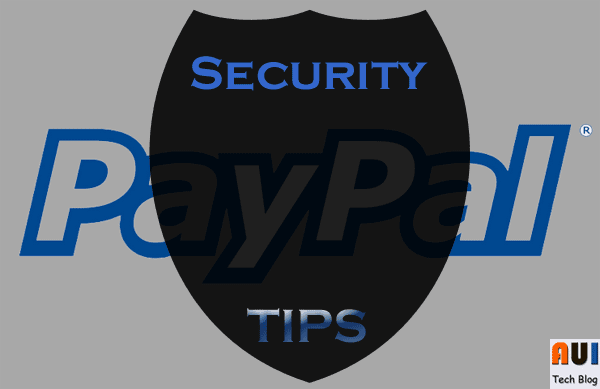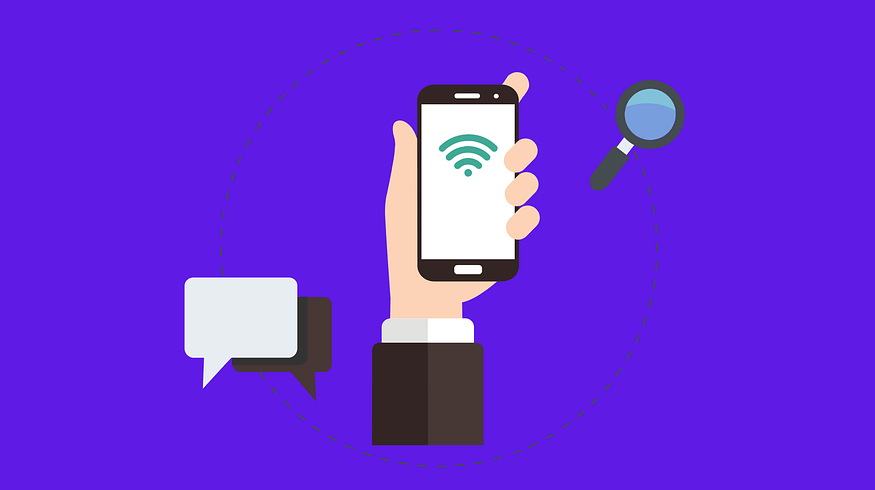Do you worry about using the internet because scammers are after your money? There are lots of dangers out there, it’s true, but with the right approach, you can protect yourself from most of them. The important thing is to know what to watch out for. These are seven of the most common scams on the internet today.
1. Phishing Scams
This type of scam is all about stealing your personal details, sometimes to access your money, and often so they can be used to commit another crime. Various tricks are used to get you to click on a link and visit a fake website (which may look like the one you’re familiar with) and enter your details.
Often you’ll be told that there’s a problem with a real account that you have, and then be directed to log in on a fake page. Go to your account in your usual way instead if you want to check.
2. Nigerian Scams
These scams (which may not be from Nigeria) involve somebody contacting you to say you’ve won or inherited a lot of money, and then asking you to pay an advance fee so the money can be transferred to your bank account. They may also ask directly for your bank details.
Don’t be tempted!
If you are ever due a large sum of money like this for real, you’ll receive a traditional paper letter and there will be lawyers involved – you won’t hear about it through email.
3. Make Money Fast Scams
There are many variants of this scam, which pre-dates the internet and involves someone offering to sell you a scheme that will help make you rich (as if they wouldn’t just keep it for themselves if it worked).
Online versions commonly involve supposedly foolproof forex prediction systems. There are no real systems like this but scammers will sometimes offer to trade on your behalf and give you what looks like good returns at first until you buy in fully, then they’ll disappear.
4. Online Dating Scams
In today’s world when it’s hard to find the right love match, more and more people are turning to online dating, and scammers are keeping pace. Usually using fake photos, they trick users into sending intimate photos which they then threaten to send to their families unless they are given money.
On other occasions, they form what seems to be a romantic friendship, then pretend to be in trouble and ask you to send them money.
5. Ransomware and Scareware Scams
If malicious code gets past your anti-virus software and into your computer, you may find that you face extortion and are told you have to pay money to get your files back. Making regular backups to an external hard drive will make you less vulnerable to this.
Be wary of scareware scams, where people take advantage of the fear of ransomware by claiming your computer is infected when it’s not, and offering you expensive software they say will fix the problem.
6. Fake Brokers
Sometimes scammers set up fake broker sites to tempt traders, or to imitate real brokers. Research is the key to staying safe in this case.
Only trust reviews from major publications and check with regulators directly to see if the broker is listed. Don’t click on links in email, instead, look for brokers on a major search engine.
7. Tempting Downloads
How does malicious code get into people’s computers? Often it’s hidden inside things you will want to download and use, like pirate videos and music.
Plain text email, PDF files, and basic documents are fine but you should be wary about downloading anything else from a source you’re not certain you can trust.
Some people give away good things out of the kindness of their hearts but many others do so because they can profit from it through blackmail or theft.
An Advice For All Internet Users
In general, staying safe online is about using your common sense and resisting temptation. Be wary of strangers who say they want to do you favors and if somebody you know contacts you with a strange offer, get in touch with them in a different way to find out if it’s really them.
Use up-to-date anti-virus software and strong passwords to make sure your computer doesn’t get hijacked. Anybody can be unlucky, but taking this approach will keep you safe from most of what’s out there and let you use the internet with a lot less worry.




